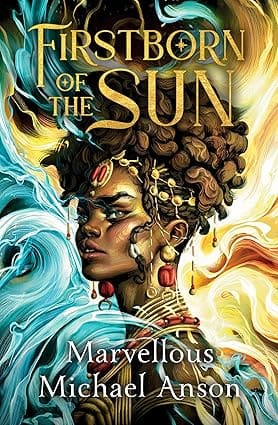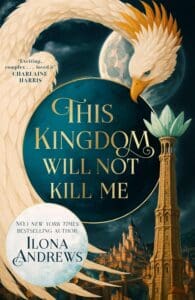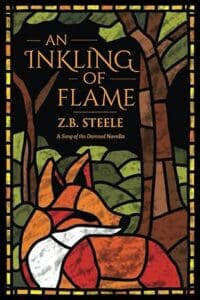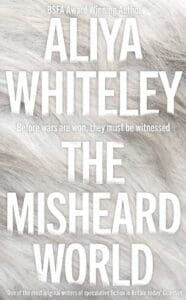
Synopsis
In the Kingdom of Oru L’ore has a secret. She is the only one without agbára – the ability to harness power from the sun. On pain of death she must conceal it from everyone. Including her best friend, Alawani.
But when the gods declare Alawani an Àlùfáà High Priest – a great honour where he will serve the gods and the Kingdom – he must be stripped of his power in a brutal trial likely to kill him. Unwilling to bear his death, L’ore vows to rescue him.
When she desperately attempts to channel agbára an icy shadow magic instead pours from her hands; a power she learns originated from a forbidden, secret land beyond Oru.
In this place, she and Alawani must seek sanctuary from those pursuing them. But soon they will discover a secret that could bring the kingdom to its knees . . .
Review
A stunningly impressive West African-inspired epic, high fantasy.
L’ore is an outcast in Oru, daughter of a coward and hiding a secret that would see her killed: she is the only one without agbára – the ability to harness power from the sun.
When her best friend, Prince Alawani (who will never become King) is chosen to be an Àlùfáà, something that should be impossible for him, L’ore vows to rescue him.
Lots of secrets come to light, there’s brilliant friendship and slow burn, epic fight scenes and magic, political intrigue. Also, the world-building is intense, but it is easily digestible. When authors can pull this off on their first try, I’m astounded.
Whilst there is so much going on (the synopsis leaves so much out), I never felt lost. You are reminded of certain information and history throughout. Normally, I despise hand-holding in fantasy, but this wasn’t that. This was the perfect balance.
Ọgbọ́ n ọdún yìí wèrè èmíì Today’s wisdom may be tomorrow’s madness.
It was filled with snippets of wisdom, moments of self-reflection built in for the characters and readers which never felt heavy-handed.
You get quite a few character perspectives. Most are fully realised and I’m sure others will be fleshed out in future instalments. I did feel we were going in circles with our two main characters, but the pace and intrigue still kept my attention.
‘It’s not about what you want. It’s about dealing with what you already have. It’s who you are. You can’t change it, the same way you can’t decide to be a tree.’
I can already predict some reviewers will complain about the dialect used occasionally to represent the Yoruba culture. I appreciated it. Immerse yourself and educate yourself.
For fans of The Battle Drum and Children of Blood and Bone.







Leave a Reply